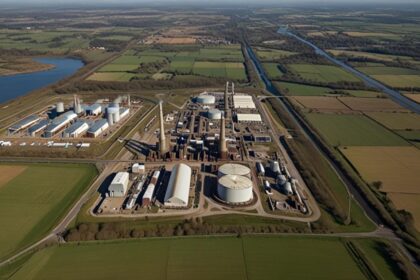WikiLeaks founder Julian Assange has reached a tentative plea deal with the United States, pleading guilty to one count of conspiring to obtain and disclose classified U.S. national defense documents. After being released from Belmarsh Prison in London, Assange is set to return to Australia following court appearances in the Northern Mariana Islands.
WikiLeaks founder Julian Assange has reached a tentative plea deal with the United States and has been released from Belmarsh Prison in London after a 14-year saga. Assange, 52, will plead guilty to one count of conspiring to obtain and disclose classified U.S. national defense documents, with the other 17 charges against him being dropped. This agreement likely means that Assange will not face additional jail time.
Assange’s flight from London arrived on the U.S. island of Saipan in the Northern Mariana Islands, where he will appear in court before returning to his native Australia. Australian Prime Minister Anthony Albanese played a significant role in advocating for Assange’s release, emphasizing that his continued incarceration was unnecessary.
Assange’s legal troubles began in 2010 following WikiLeaks’ release of U.S. military and diplomatic documents, which significantly shifted public perceptions about war and U.S. power. He subsequently spent seven years in the Ecuadorian embassy in London to avoid extradition to Sweden over sexual assault allegations, which were eventually dropped.
The plea deal and Assange’s impending freedom come after extensive diplomatic efforts, especially from the Australian government. Assange’s release has been met with both support and criticism from various political figures worldwide.













